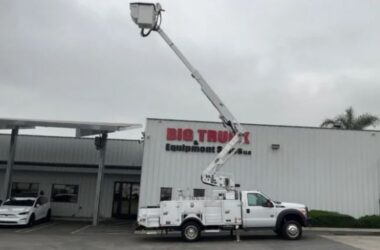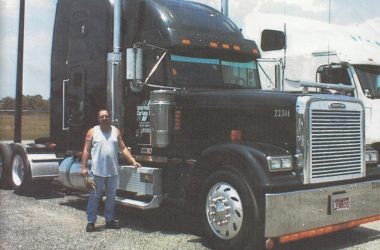Trucks, often seen as powerful vehicles used for transporting goods and materials, have an interesting history and play a vital role in various industries. From their humble beginnings to their modern-day capabilities, trucks have become an indispensable part of our lives.
The invention of the truck can be traced back to the late 19th century when steam-powered wagons and horse-drawn carts were commonly used for transportation. However, it was the introduction of gasoline-powered engines and advancements in engineering that paved the way for the development of trucks as we know them today. In 1896, the first automotive truck was introduced by Gottlieb Daimler, a German engineer, which marked the beginning of a new era in transportation.
As the demand for efficient and reliable transportation increased, truck manufacturers started innovating and improving their designs. The early models of trucks were simple and predominantly used for local deliveries. However, with the advent of mass production techniques in the early 20th century, trucks became more accessible and affordable, allowing for expanded usage in various industries.
During the mid-20th century, trucks underwent significant advancements, both in terms of design and functionality. The introduction of hydraulic brakes, improved engines, and reinforced chassis made trucks more powerful and capable of carrying heavier loads. This led to an expansion of their use in industries such as construction, mining, and agriculture, where hauling heavy equipment and materials is essential.
Trucks have also played a crucial role in the development of long-distance transportation. With the construction of an extensive network of highways and the implementation of smooth logistics systems, trucks became the backbone of interstate commerce, ensuring that goods are delivered promptly and efficiently across the country. This led to the growth of the trucking industry, creating job opportunities and fueling economic growth.
In recent years, the trucking industry has witnessed further advancements, thanks to the integration of sophisticated technology. The introduction of GPS navigation systems, driver assistance features, and remote monitoring capabilities has significantly enhanced the safety, efficiency, and reliability of trucks. These technological advancements have not only improved the experience for truck drivers but also reduced fuel consumption and emissions, making trucks more environmentally friendly.
Moreover, with the rise of e-commerce and online shopping, trucks have become even more vital in fulfilling the demands of a rapidly evolving consumer market. The ability to transport goods from warehouses to distribution centers and ultimately to the customers’ doorsteps relies heavily on efficient trucking services. This highlights the crucial role trucks play in facilitating global trade and meeting the ever-increasing demands of a modern society.
Despite their immense contributions to various industries, trucks are not without their challenges. The industry faces issues such as driver shortages, traffic congestion, and rising fuel prices. However, truck manufacturers and policymakers continue to work towards solutions, such as promoting autonomous driving technology and investing in infrastructure improvements, to address these obstacles.
In conclusion, trucks have come a long way since their inception in the late 19th century. From humble beginnings as steam-powered wagons, trucks have evolved into highly capable vehicles essential in transporting goods across industries and enabling global commerce. With ongoing advancements in technology and a growing need for efficient logistics, trucks will continue to be a crucial part of our daily lives, ensuring that goods are readily available and businesses thrive.








